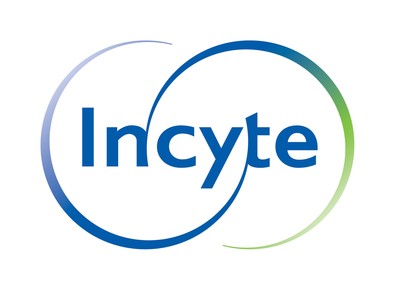CHMP Recommends Approval of Lilly's Baricitinib for the Treatment of Adults with Moderate to Severe Atopic Dermatitis

INDIANAPOLIS,?Sept. 18, 2020?/PRNewswire/ --?Eli Lilly and Company?(NYSE:LLY) and?Incyte?(NASDAQ:INCY) announced today that the?European Medicines Agency's?(EMA)?Committee for Medicinal Products?for Human Use (CHMP) has issued a positive opinion for baricitinib for the treatment of adult patients with moderate to severe atopic dermatitis (AD) who are candidates for systemic therapy.
This opinion marks the first step toward European regulatory approval for baricitinib (marketed as OLUMIANT?) for patients with AD. If approved, baricitinib would become the first JAK inhibitor indicated to help treat patients with AD. The CHMP opinion is now referred for action to the?European Commission, which grants approval in the?European Union. A final decision is expected from the?European Commission?in the next one-two months.
"Due to the limited treatment options currently available for adult patients with AD, we're excited to further explore baricitinib's potential benefit for patients,"?said?Patrik Jonsson,?Lilly?senior vice president and president of?Lilly?Bio-Medicines. "At?Lilly, we aspire to elevate treatment standards for patients with dermatologic conditions. Today's CHMP opinion brings us closer to providing a new medicine for adults living with AD in?Europe."
The positive opinion was based on?Lilly's Phase 3 BREEZE-AD clinical development program for baricitinib evaluating the medicine's potential to treat AD including BREEZE-AD1 and BREEZE-AD2, monotherapy studies investigating the efficacy and safety of baricitinib in moderate to severe AD patients; BREEZE-AD4, a study evaluating the efficacy and safety of baricitinib in combination with topical corticosteroids in patients with moderate to severe AD who have failed or who are intolerant to, or have contraindications to cyclosporine; and BREEZE-AD7, a study evaluating the efficacy and safety of baricitinib in combination with topical corticosteroids in patients with moderate to severe AD.
"Patients living with AD face difficulties on a daily basis, and this CHMP opinion marks an important milestone in providing adult AD patients with a new potential treatment option," said Prof.?Thomas Bieber, M.D., Ph.D., M.D.R.A., Professor of Dermatology and Allergy,?University Hospital?in Bonn,?Germany.
OLUMIANT??is already approved in more than 70 countries as a treatment for adults with moderately to severely active rheumatoid arthritis (RA).
Lilly?has exclusive worldwide development and commercialization rights for baricitinib and certain follow-on compounds for patients with inflammatory and autoimmune diseases under a license and collaboration agreement with?Incyte.
Information on the previously approved EU OLUMIANT indication (Rheumatoid Arthritis) can be found?here.
Indication and Usage for OLUMIANT (baricitinib) tablets (in?the?United States) for RA patients
OLUMIANT??(baricitinib) 2-mg is indicated for the treatment of adult patients with moderately to severely active rheumatoid arthritis who have had an inadequate response to one or more tumor necrosis factor (TNF) antagonist therapies.?Limitation of Use: Not recommended for use in combination with other JAK inhibitors, biologic disease-modifying antirheumatic drugs (DMARDs), or with potent immunosuppressants such as azathioprine and cyclosporine.
IMPORTANT SAFETY INFORMATION FOR OLUMIANT (baricitinib) TABLETS?
WARNING: SERIOUS INFECTIONS, MALIGNANCY, AND THROMBOSIS
SERIOUS INFECTIONS:?Patients treated with Olumiant are at risk for developing serious infections that may lead to hospitalization or death. Most patients who developed these infections were taking concomitant immunosuppressants such as methotrexate or corticosteroids. If a serious infection develops, interrupt Olumiant until the infection is controlled. Reported infections include:
- Active tuberculosis (TB), which may present with pulmonary or extrapulmonary disease. Test patients for latent TB before initiating Olumiant and during therapy. If positive, start treatment for latent infection prior to Olumiant use.
- Invasive fungal infections, including candidiasis and pneumocystosis. Patients with invasive fungal infections may present with disseminated, rather than localized, disease.
- Bacterial, viral, and other infections due to opportunistic pathogens.
- with chronic or recurrent infection
- who have been exposed to TB
- with a history of a serious or an opportunistic infection
- who have resided or traveled in areas of endemic tuberculosis or endemic mycoses; or
- with underlying conditions that may predispose them to infection.
![]() ?View original content to download multimedia:http://www.prnewswire.com/news-releases/chmp-recommends-approval-of-lillys-baricitinib-for-the-treatment-of-adults-with-moderate-to-severe-atopic-dermatitis-301133876.html
?View original content to download multimedia:http://www.prnewswire.com/news-releases/chmp-recommends-approval-of-lillys-baricitinib-for-the-treatment-of-adults-with-moderate-to-severe-atopic-dermatitis-301133876.html







